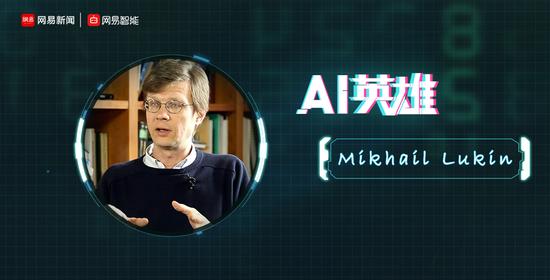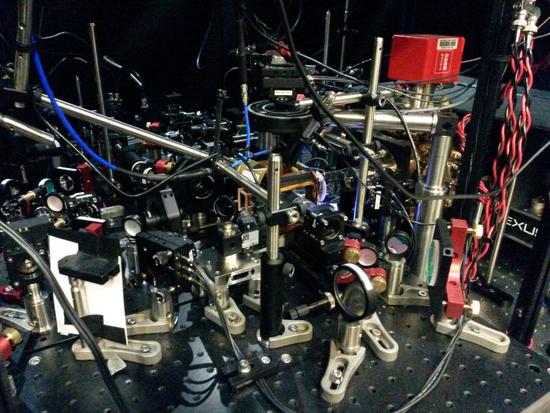
This article is produced by Netease Smart Studio (public number: smartman163), and it is the 59th AI Hero feature.
Source: Futurism
Compilation: NetEase See Compilation Robot
Review: Fu Zeng
Character Point of View:
It might not take as long as 30 years for quantum computers to move from theoretical concepts to practical applications. This field is truly exciting, and we are entering a new era full of potential for scientific breakthroughs. Soon, we will begin to see how quantum computers can play a broader role—ranging from material science and chemistry to physical systems, artificial intelligence, and machine learning, as noted by Mikhail Lukin.
For many years, the development of quantum computing has captured the imagination of scientists and tech enthusiasts alike. However, it hasn't yet reached our daily lives. Quantum systems have the potential to securely encrypt data, analyze large datasets, and solve complex problems that even the most powerful supercomputers struggle with, such as medical diagnoses or weather forecasting.
In November last year, immature quantum technology took a significant step closer to the performance we've long desired. At that time, Nature, one of the most prestigious scientific journals, published two articles showcasing the latest advancements in some of the most cutting-edge quantum technologies.
If you're unsure what a quantum computer is or what it can do for you, don’t worry. Futurism recently spoke with Mikhail Lukin, a physics professor at Harvard University, about the current state of quantum computing. He discussed the possibility of using quantum technology on cell phones or desktops in the future and what needs to be done before that becomes a reality.
The interview content was later revised for clarity and conciseness:
Q: Can you briefly explain how quantum computing works?
Mikhail Lukin: Traditional computers work by processing information through binary digits—0s and 1s. These systems follow specific rules to perform calculations, like addition and multiplication, which allow them to process information efficiently.
However, the microscopic world operates under the principles of quantum mechanics. One of the key ideas is quantum superposition, where an object can exist in multiple states simultaneously. For example, a quantum bit (qubit) can be both 0 and 1 at the same time. This allows quantum computers to process vast amounts of information more efficiently than classical systems.
By leveraging these quantum principles, quantum computers can handle multiple inputs at once, leading to exponential speedups compared to traditional computers.
Q: What does a quantum computer look like?
Mikhail Lukin: If you walk into a room with a quantum computer, you'll see a vacuum chamber, laser beams, and ultra-cold atoms. We use lasers to cool atoms to near absolute zero, allowing us to control their quantum states precisely.
 Credit: Harvard University Lukin Laboratory
Credit: Harvard University Lukin Laboratory
Q: How do you program a quantum computer?
Mikhail Lukin: We use tightly focused laser beams to trap individual atoms inside a vacuum chamber. By controlling the position and energy levels of these atoms, we can program their interactions. When atoms are excited, they interact with each other, enabling complex computations.
Q: What are the most promising applications of quantum computers?
Mikhail Lukin: While we're still exploring the full potential, quantum computers show great promise in solving complex optimization problems and factoring large numbers. For instance, Shor’s algorithm can factor large numbers exponentially faster than classical methods.
Q: Do you think quantum computers will eventually become widely used?
Mikhail Lukin: I believe we're on the cusp of a new era. While it may not take 30 years, the shift from research to real-world applications is inevitable. The next challenge is building larger, more stable quantum machines to explore their full capabilities.
Q: Could quantum computers fit in a smartphone someday?
Mikhail Lukin: Yes, it's possible. But current technology isn't there yet. However, we're making progress toward compact, portable quantum devices.
Q: What’s next for quantum computing?
Mikhail Lukin: We need to build larger, more programmable quantum systems to unlock their true potential. In the future, quantum computers may work alongside traditional ones, tackling the hardest problems while everyday tasks remain with classic machines.
Q: How can people learn more about quantum computing?
Mikhail Lukin: Quantum computing is no longer just a futuristic dream. It's a rapidly evolving field with real-world applications. From medicine to artificial intelligence, the possibilities are vast. We're just beginning to understand what quantum computers can do—and the future looks bright.

Click to view the "AI Heroes" topic and explore past content!
Note: "AI Heroes" is an exclusive series by Netease Smart Studio. Each week, it tells stories about artificial intelligence, explores tech trends, captures industry opportunities, and highlights human value. Please cite the source and share!
Outdoor Fibre Termination Box,Fiber Optic Distribution Cabinet,Wall Mount Fiber Distribution Box,Distribution Box Fiber Optic
Ningbo Fengwei Communication Technology Co., Ltd , https://www.fengweicommunication.com